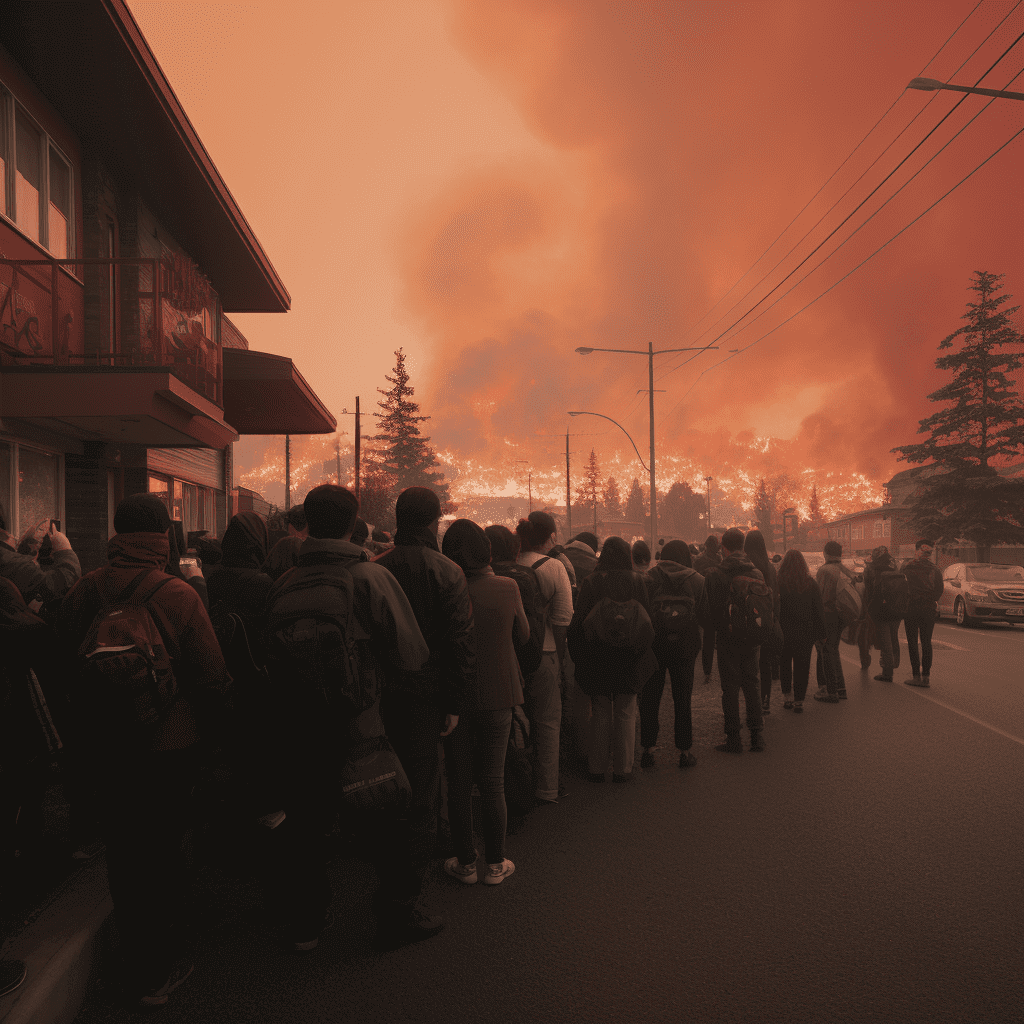Amid a wildfire’s relentless advance toward the northern Canadian city of Yellowknife, the crisis deepens as distressed residents are whisked away from overcrowded evacuation flights. Long lines of people gathered in hopes of securing a flight to safety on Thursday, only to be asked by officials to try to board again on Friday or Saturday.
As the fire approaches, the urgency to evacuate Yellowknife’s population of about 20,000 has reached a critical point. The outskirts of the city could be threatened by the wildfire on Saturday, forcing authorities to enforce a mandatory evacuation at noon on Friday.
With nearly 240 wildfires ravaging the Northwest Territories, the regional government declared a state of emergency. The capital, Yellowknife, is in the path of the inferno, and its residents have been urged to seek refuge elsewhere.
Amid the evacuation chaos, both Air Canada and WestJet, Canada’s top airlines, have come under scrutiny for increasing airfares and rescheduling fares. Locals have accused these carriers of taking advantage of the crisis, making evacuation unaffordable for some.
Air Canada’s spokesman emphasized that fares on direct flights had been capped and the airline was ramping up its operations. However, the impact of the wildfire on aviation operations led to flight cancellations, adding to the complexity of the situation.
WestJet, on the other hand, adjusted fares to avoid price escalation and waived rescheduling fees for those traveling to Yellowknife in the next five days.
The Canadian military has been tasked with coordinating the largest air evacuation effort in the region’s history. Evacuation orders have extended to communities beyond Yellowknife, including Fort Smith, K’atl’odeeche First Nation, Hay River, Enterprise, Jean Marie River and Kakisa.
Canada is grappling with its most severe wildfire season on record, with more than 1,100 fires active across the country. Experts attribute the rise to a warmer and drier spring, indicative of the impact of climate change.
As the nation grapples with the aftermath of these devastating wildfires, the need for swift and coordinated action is more pronounced than ever. The plight of Yellowknife underscores the urgent imperative to address the broader challenges posed by climate change and its consequences.
This article is sourced from and written by AI.
Track and stay informed about AI-generated news:

